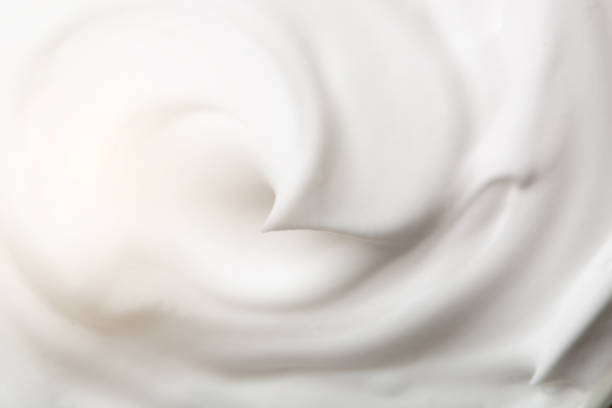In the world of skincare, proper application and understanding of products are crucial for achieving desired results. One component that often confuses consumers is the difference between day cream and night cream. Irrespective of the cost, if these skincare products are applied incorrectly, their effectiveness diminishes. Among several essential skincare products, facial creams play a vital role, particularly for individuals with dry skin. While lotions and moisturizers offer hydrating effects, day and night creams serve different purposes, catering to specific skincare needs.

Understanding Day Creams:
Day creams are specially formulated to protect the skin from daily external aggressors like pollution, UV radiation, and stress. These creams contain a variety of ingredients that nourish and shield the skin throughout the day. Key components of day creams often include antioxidants, such as Vitamin C and E, sunscreen, and lightweight moisturizing agents. Their light consistency allows for easy absorption and provides a smooth base for makeup application. Day creams are designed to address common concerns like dryness, dullness, and premature aging caused by environmental exposure.
The Benefits of Day Cream:
1. Sun Protection: One of the primary reasons day creams differ from night creams is their inclusion of sunscreen. Applying a day cream with a broad-spectrum SPF (Sun Protection Factor) safeguards the skin against harmful UVA and UVB rays, reducing the risk of sunburn, skin damage, and premature aging. Regular usage of SPF-rich day creams helps prevent the development of dark spots, uneven skin tone, and skin cancer.
2. Hydration and Moisture: While day creams provide hydration, their main purpose is to maintain the proper moisture balance throughout the day. These creams often contain water-binding agents like hyaluronic acid, glycerin, and ceramides, ensuring the skin remains sufficiently moisturized. Proper hydration aids in preventing dryness and flakiness, resulting in a more plump and supple complexion.
3. Environmental Protection: Day creams act as a shield, protecting the skin from harmful environmental factors like pollution, dust, and free radicals. Antioxidants present in day creams neutralize the damaging effects of free radicals, reducing inflammation, and preventing collagen breakdown. This defense mechanism assists in maintaining youthful and healthy-looking skin.
Understanding Night Creams:
Night creams, while similar in some ways to day creams, serve different purposes due to the skin's biological changes during sleep. The skin goes through a process of repair, regeneration, and rejuvenation throughout the night, making it an ideal time to address specific skincare concerns. These creams are formulated to nourish and restore the skin, aiding in the healing process and maximizing overnight rejuvenation.

The Benefits of Night Cream:
1. Deep Hydration and Repair: Night creams often have a thicker and more intense formula compared to day creams. They are packed with emollients like shea butter, natural oils, and humectants, which provide deep hydration and moisturization during the extended period of uninterrupted sleep. These creams work to repair the skin barrier, enhance elasticity, and improve overall skin texture.
2. Cell Renewal and Anti-Aging: While the body is at rest, night creams help boost cell turnover, allowing for the removal of dead skin cells and the stimulation of new cell growth. Ingredients like retinol, peptides, and collagen-boosting agents aid in reducing fine lines, wrinkles, and other signs of aging. By supporting the skin's natural rejuvenation process, night creams contribute to a more youthful and radiant appearance.
3. Targeted Treatment: Night creams often contain specific active ingredients tailored to address individual skincare concerns such as hyperpigmentation, acne, or uneven skin texture. These creams work diligently during the night to repair damaged cells, fade dark spots, and regulate sebum production, promoting clearer and more even-toned skin.
Proper Application for Optimal Results:
To maximize the efficacy of day and night creams, understanding the correct application techniques is essential. Here are some tips for achieving optimal results:
1. Cleanse the face thoroughly before applying any cream to ensure the skin is free from dirt, oil, and impurities.
2. Use a toner or mist to prep the skin and enhance absorption.
3. Apply a small amount of day cream to the face, neck, and décolletage, gently massaging it in circular motions until fully absorbed.
4. Follow with sunscreen, particularly when using day creams without built-in sun protection.
5. For night cream application, again cleanse the face and apply toner/mist.
6. Take a small amount of night cream and massage it onto the skin using upward strokes, focusing on are as of concern.
7. Allow the night cream to penetrate the skin overnight, facilitating its reparative and hydrating properties.
Day and night creams play integral roles in maintaining healthy and radiant skin. Understanding the differences between these skincare products and their appropriate application techniques is crucial for achieving optimal results. Day creams protect the skin from external aggressors, provide hydration, and defend against early signs of aging. On the other hand, night creams aid in repairing, hydrating, and targeting specific skincare concerns by harnessing the skin's natural rejuvenation process during sleep. By incorporating the right day and night creams into a skincare routine, individuals can ensure their skin remains well-nourished, resilient, and glowing.
Post time: Oct-07-2023


